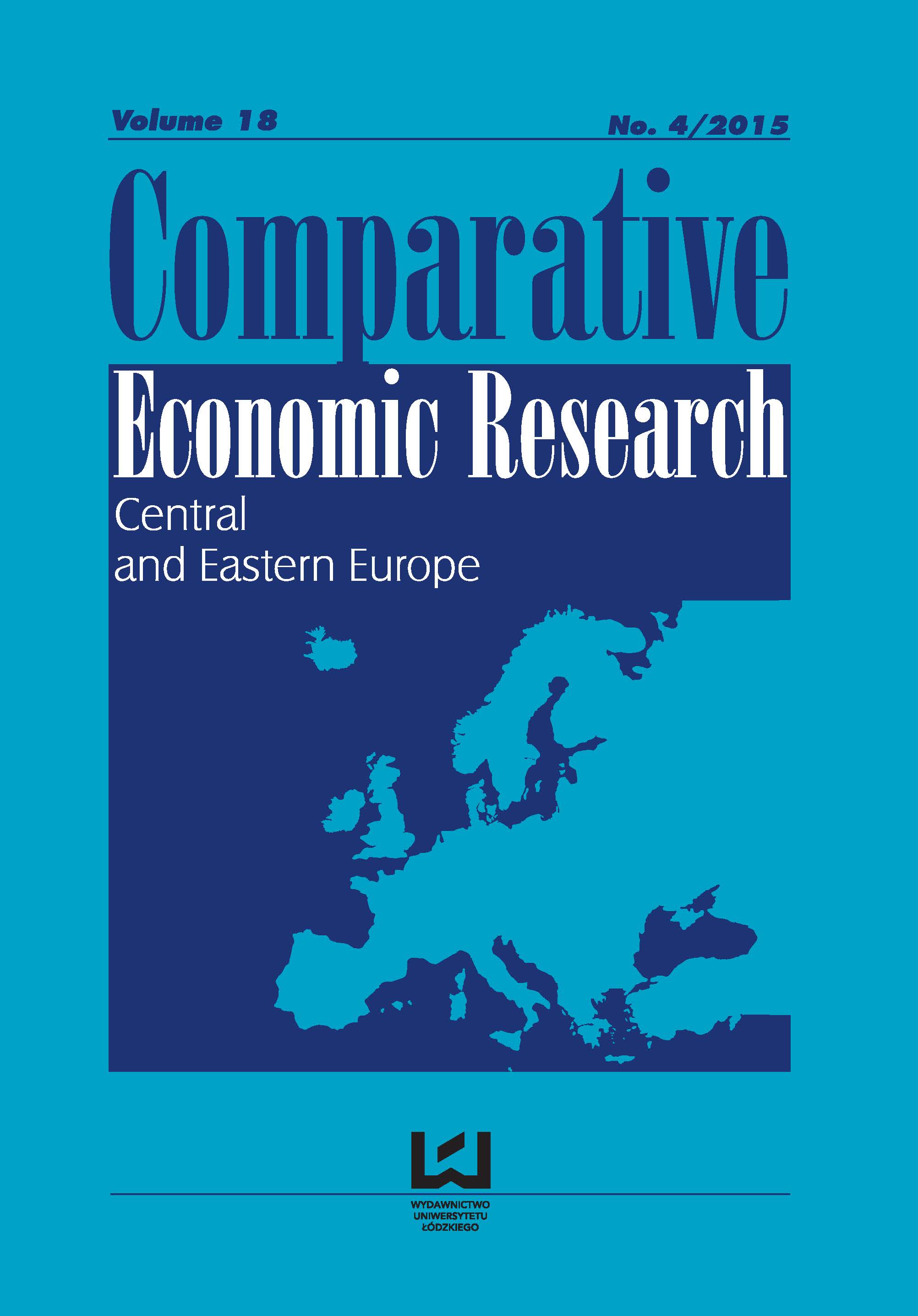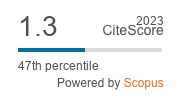Spatial Diversification Of Living Standards In The Former Communist Countries Of Central And Eastern Europe And The Balkans
DOI:
https://doi.org/10.1515/cer-2015-0032Keywords:
post-communist countries, standard of living, socioeconomic developmentAbstract
The aim of this paper is to present the results of research on the variation in the standard of living and quality of life of the inhabitants of Central and Eastern European and the Balkan countries previously belonging to the Soviet sphere of influence. Nineteen post-communist countries were selected for this research, including: seven from the group of post-socialist countries, seven post-Soviet countries, and five from former Yugoslavia. The research procedure adopted involved static (comparative analysis of life quality indexes - Quality of Life Inde X(QLI) and Human Development Index (HDI) and dynamic (assessment of standard of living based on synthetic taxonomic measures for the years 2007 and 2012) data analysis. The findings indicate a significant variation in the living standards among the inhabitants of post-communist countries. Depending on the scope and accuracy of the quality life measures used, the countries’ ranking positions show a slight variation, though in all cases similar trends are noticeable. The countries of former Czechoslovakia (the Czech and the Slovak Republics) show the highest standard of living. Other countries belonging to the EU also ranked relatively high. Such Balkan states as Albania, Moldova, Bosnia and Herzegovina ranked poorly. The results of multidimensional analysis confirmed these findings and, moreover, allowed for the determination of the trends in living conditions in particular countries. In 2007 a higher-than-average standard of living was identified in nine countries, whereas in 2012 this was the case for 10 countries. As compared to 2007, GDP growth was observed in 16 countries, as well as improvements in health care (increases in health care outlays) and increases in the number of Internet users. However, some phenomena may be disturbing – the rise in unemployment (16 countries), decline in population growth (9 countries) and growing inflation (7 countries). To recapitulate, the standard of living enjoyed by the population of postcommunist countries is gradually improving, though the pace of changes and trends vary across those countries. What’s more, the results show that with the exception of those countries which are EU members, belonging to specific groups of post-communist countries (post-socialist, post-Soviet and former Yugoslavia) does not affect significantly their populations’ standard of living and quality of life.
Downloads
References
Baddeley M. (2013), Behavioural Economics and Finance. Routledge.
Google Scholar
Human Development Report 2011. Summary - http://hdr.undp.org/sites/default/files/reports/271/hdr_2011_en_complete.pdf (access data 15.01.2015)
Google Scholar
Karmowska G. (2013) Dywergencja czy konwergencja. Studium duoregionu Pomorze, Wyd. Zachodniopomorskiego Uniwersytetu Technologicznego, Szczecin.
Google Scholar
Kukuła K. (2000) Metoda unitaryzacji zerowanej, Wyd. Nauk. PWN, Warszawa.
Google Scholar
Technical Notes. Human Development Report 2014 - http://hdr.undp.org/sites/default/files/hdr14_technical_notes.pdf (access data 15.01.2015)
Google Scholar
World Bank database - http://databank.worldbank.org (access data 15.01.2015)
Google Scholar
Wprowadzenie do studiów wschodnioeuropejskich. Bałkany: Przeszłość-Teraźniejszość-Przyszłość (2013) red. nauk. Podolak M., T.1. Uniw.Marii Curie-Skłodowskiej w Lublinie.
Google Scholar
Quality of Life Index, http://nationranking.wordpress.com/2011/03/06/2011-qli/ (access data 15.01.2015)
Google Scholar
Downloads
Published
How to Cite
Issue
Section
License

This work is licensed under a Creative Commons Attribution-NonCommercial-NoDerivatives 4.0 International License.











